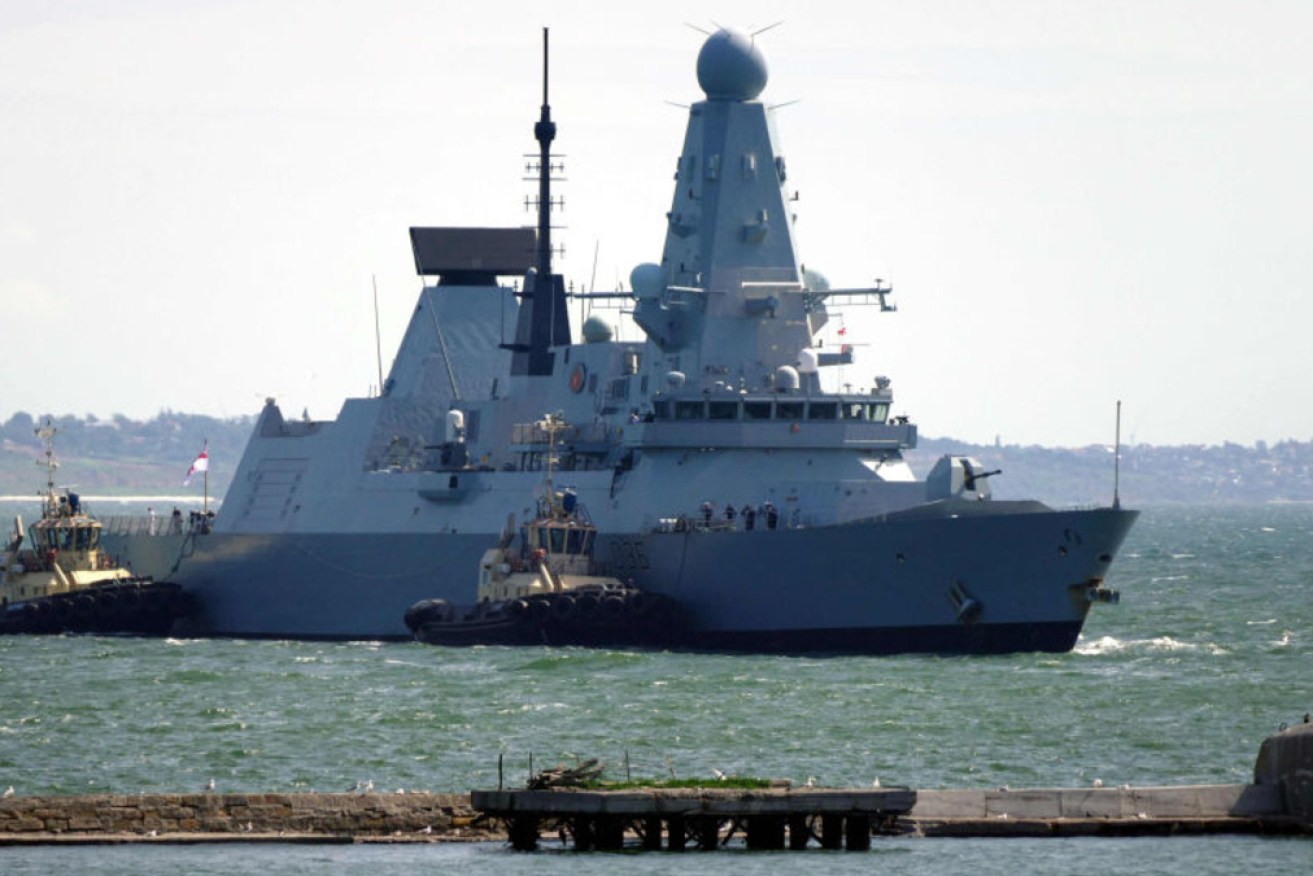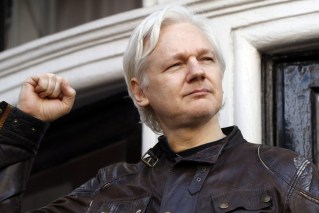UK denies Russia targeted British warship – but BBC reporter on board says he saw it


British warship HMS Defender was sailing in the Black Sea when it was surrounded by Russian planes and ships. Photo: Getty
Russia has claimed it used live ammunition and bombs to force a British warship out of an area near Crimea.
The UK rejected Russia’s account of the incident, saying it believed any shots fired were a pre-announced Russian “gunnery exercise” and that no bombs had been dropped.
But a BBC correspondent was on the deck of the British Royal Navy’s HMS Defender as it sailed in the Black Sea – and says he witnessed the confrontation.
The reporter, Jonathan Beale, said he saw more than 20 Russian aircraft flying above him while he was on the British warship. There were two coastguard boats about 100 metres away, Beale reported.
The Russian military shadowed the destroyer as it sailed about 20 kilometres off Crimea’s coast, he said.
At one point he heard a warning being issued over the radio that said “if you don’t change course I’ll fire”.
“We did hear some firing in the distance but they were believed to be well out of range,” Mr Beale said.
Russia’s Defence Ministry said it ordered a patrol ship to fire warning shots at the Defender after it ignored a notice against intrusion and sailed near Sevastopol, the main Russian naval base in Crimea.
It claimed to have also dropped four bombs in the path of the vessel to force it to change course.
The ministry claimed the Defender left Russian waters just minutes later, calling the passage of the British warship through the area an act of “blatant provocation”.
Britain denies Russia’s claims
British Prime Minister Boris Johnson’s spokesman said: “It’s incorrect to say either that it was fired upon or that the ship was in Russian waters.”
The UK confirmed that its destroyer had sailed through what it described as waters belonging to Ukraine.
The ship was “conducting an innocent passage through Ukrainian territorial waters in accordance with international law,” the UK Ministry of Defence said in a statement.
Military experts said that whether or not the details of the Russian or British accounts were accurate, the incident appeared to represent an escalation in confrontation between the US and its allies and Russia over disputed sea lanes.
Russia seized and annexed the Crimea peninsula from Ukraine in 2014 and considers areas around the peninsula’s coast to be Russian waters.
The UK and some other countries deem Crimea to be part of Ukraine and reject Russia’s claim to the seas around it.
“Innocent passage” is an internationally recognised right for ships to sail through territorial waters of a country provided they mean no harm.
“This was done to test Russian resolve over Crimea,” Mark Gray, a maritime security specialist and a retired colonel with Britain’s Royal Marines, told Reuters.
“Russia is trying to create facts on the ground and get them respected internationally so that their annexation is in effect rubber-stamped by the world,” he said, comparing Russia’s Black Sea claims to those of China in the South China Sea.
Ukrainian Foreign Minister Dmytro Kuleba said the incident showed that Russia’s “aggressive and provocative policies” in the Black Sea and nearby Azov Sea constituted a “continuous threat to Ukraine and its allies”.
In a tweet, Mr Kuleba called for more co-operation between NATO and Ukraine in the Black Sea.
-with AAP








